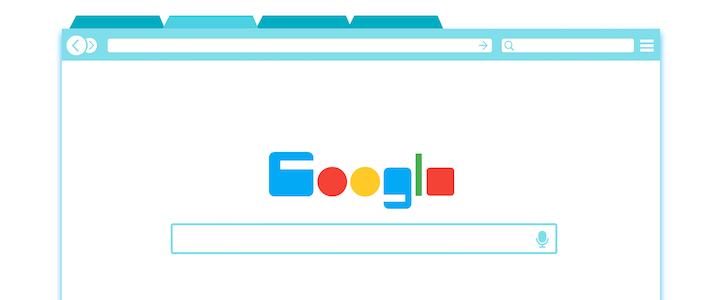- Politics
- Diversity, equity and inclusion
- Financial Decision Making
- Telehealth
- Patient Experience
- Leadership
- Point of Care Tools
- Product Solutions
- Management
- Technology
- Healthcare Transformation
- Data + Technology
- Safer Hospitals
- Business
- Providers in Practice
- Mergers and Acquisitions
- AI & Data Analytics
- Cybersecurity
- Interoperability & EHRs
- Medical Devices
- Pop Health Tech
- Precision Medicine
- Virtual Care
- Health equity
What Healthcare Can Learn from Patients' 'Dr. Google' Searches
A new analysis of patient internet searches prior to emergency department visits suggests the data can produce meaningful insights.

A consultation with “Dr. Google” might lead patients to dubious healthcare information, but those searches can generate highly valuable data for healthcare practitioners.
That’s the key takeaway of a new study that compared the electronic health records of patients who visited an urban Pennsylvania emergency department to the Google search history of the same patients in the days and weeks leading up to their hospital visit.
As it turned out, patients’ health-related Google searches doubled in the week before the patient visited the emergency department. Often, those queries regarded symptoms of the eventual diagnosis. Other times, they were related to logistics, such as where the closest emergency room was.
Jeremy Asch, the study’s lead author and an innovation strategist at Penn Medicine’s Center for Health Care Innovation, told Inside Digital Health™ that patient search histories could be used to improve healthcare in a number of different ways.
“Whether the data are used in aggregate or on a more individual scale really depends on the problem we are trying to solve,” Asch said. “We can use aggregated data to understand gaps in care where patients felt they needed more support, but we also have the opportunity to see those unique queries.”
For instance, Asch said one patient’s Google history included a search about the size of a walnut. When they compared that search to the patient’s health record, they found out that the patient had been told at a previous hospital visit that the patient had a “walnut-sized fibrous tumor.” The search, in other words, was an indication that the patient left the hospital without understanding the size of the tumor.
“I do not think had we looked at aggregated results, that we would see major trends about walnut sizes in patient data, but this personal look sheds light on those questions people may not want to ask their providers and can really help us better engage around care in the future,” Asch said.
Aggregate-level search query data could be used by healthcare organizations to identify and fill communication gaps by making sure physicians address questions they know patients are likely to have, even if the patient never brings it up in the examination room.
However, Asch said he also wants to be careful not to weigh down physicians with a “data dump.” Rather, the aim would be to produce meaningful, actionable insights. He said there are important opportunities in this area if researchers can find the right ways to sift through and present these data.
“Streamlining the processes by helping us to understand the current pathways to care patients are taking is really where we think these data will shine,” he said.
The study also found a high percentage of patients were willing to share their search histories. Of the 334 patients who were approached and had a Google account, 49 percent volunteered to share their search history with investigators.
Because the investigation revealed patterns in patient behavior leading up to an emergency department visit, it suggests the possibility of one day using search behavior as a prediction tool.
“Changes in behavior leading to a hospitalization signals to us that we could perhaps find ways to identify if a person will visit the hospital soon,” Asch said. “Knowing how patients made the decision to go to the hospital can be incredibly valuable in anticipating future patients’ needs.”
The study is titled, “Google search histories of patients presenting to an emergency department: an observational study.” It was published last month in BMJ Open.
Get the best insights in digital health directly to your inbox.
Related
Podcast: Nuance, Tech & Fighting Physician Burnout
What Prime Day Genetic Testing Deals Say About Healthcare’s Future
Twitter Bots Are Spreading Bad Health Information
